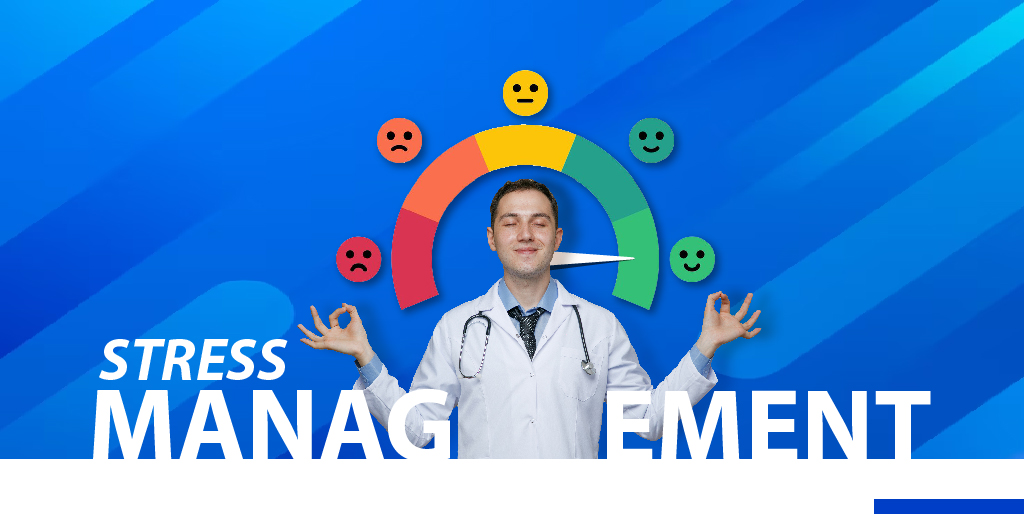The dynamic Indian healthcare sector, characterized by the fast pace, heavy workload and considerable stress, presents physicians with distinct challenges impacting their mental and physical well-being.
A nationwide survey in India among doctors revealed that close to 40% experienced significant stress levels while attending to patients, attributing it to extended working hours and prevalent treatment methods.
This piece aims to delve into actionable approaches to enable you as doctors to handle stress adeptly, thrive amidst pressure, and maintain a sustainable balance in your professional lives.
Understanding the Source
In India, doctors grapple with immense pressure stemming from various factors such as long work hours, overwhelming patient loads, and the constant need to make crucial decisions within limited resources.
The workload for doctors in India surpasses that of their global counterparts, often clocking between 12 to 16 hours attending to a larger number of patients due to a disproportionate doctor-patient ratio.
Additionally, concerns regarding resource scarcity, notably in rural areas, persist. A study conducted in March 2022 highlighted an alarming shortage of essential medical professionals, with nearly an 80% deficit in community health centres of surgeons, physicians, gynaecologists, and paediatricians in rural India.
The amalgamation of these challenges blurs the boundaries between personal and professional life for doctors, frequently resulting in burnout and chronic stress.
Indicators such as persistent fatigue, irritability, and detachment from work bring the toll of these stressors to light.
As doctors, acknowledging and comprehending these stress factors and their manifestations represents the initial steps toward effective management. This understanding enables you to sustain high-quality care while prioritizing your well-being.
Building Resilience
Developing resilience is essential to manoeuvre the path of an intense, demanding medical career. To nurture a resilient mindset, you must uphold a positive perspective, especially when faced with arduous circumstances. This positivity is pivotal in managing the uncertainties and pressures of the medical field. Moreover, you as a doctor should concentrate on honing your ability to adapt, effectively addressing unexpected situations and meeting diverse patient needs.
Furthermore, fostering a growth mindset becomes indispensable. By perceiving challenges not as setbacks but as stepping stones to learning and professional advancement, you can promote continual improvement and adaptability – essential elements for thriving within the ever-evolving healthcare landscape.
Prioritizing Self-Care
Maintaining exemplary patient care standards is impossible without focusing on your well-being.
It involves prioritizing essential breaks and downtime to rejuvenate physically and mentally, mitigating fatigue and preserving focus.
Working towards a harmonious work-life balance is critical to protecting against burnout by allowing yourself to detach from workplace stressors and partake in personal and family pursuits.
Integrating these self-care practices will help you sustain your enthusiasm and dedication to your profession, ultimately positively impacting your well-being and helping you impart better care to your patients in the long term.
Effective Time Management
Employing a mix of time management strategies is recommended to alleviate stress. Utilizing tools like digital scheduling and patient management systems can amplify efficiency, giving you more control over your time.
Prioritizing critical and time-sensitive tasks as an initial step diminishes the weight of the overwhelming workload, effectively mitigating stress. Pairing this approach with mastering prioritization techniques helps isolate tasks requiring immediate attention from those that can be deferred.
Moreover, establishing achievable goals is crucial. This practice ensures a manageable schedule, preventing overcommitment, thus enabling you to allocate time effectively for professional responsibilities and personal well-being.
Establishing Boundaries
Achieving a harmonious equilibrium between professional commitments and personal lives necessitates doctors establishing distinct boundaries. It involves recognizing the significance of saying “no” to supplementary commitments that could drown you further in an already demanding schedule.
Boundary setting entails cultivating effective communication skills, enabling you to articulate your limits without compromising professional relationships or the quality of patient care. These boundaries play a pivotal role in managing workload and expectations, shielding you against burnout and stress.
Adhering steadfastly to these limits is crucial to safeguarding your well-being and ensuring uncompromising.
Mindfulness and Stress Reduction Techniques
Mindfulness practices are effective in helping doctors enhance awareness, which is critical to managing stress.
Techniques like deep breathing and meditation serve to reduce stress levels markedly. These practices revolve around centring the mind, resulting in heightened focus and diminished anxiety.
Integrating mindfulness into daily routines yields substantial advantages, including heightened mental clarity, improved emotional regulation, and sharper decision-making abilities. Consistent engagement in mindfulness exercises, even brief ones, offers a valuable mental reset within the demanding schedules that you contend with.
Seeking Support
Doctors grappling with the overwhelming demands of their profession should actively seek support to navigate stress effectively. It’s vital to recognize that seeking assistance from colleagues, mentors, or mental health professionals signifies strength rather than weakness. Establishing a culture of open team communication fosters a supportive environment, encouraging everyone to share challenges and seek guidance comfortably.
Moreover, facilitating access to counselling and mental health services resources is paramount. Offering a confidential space where doctors can openly discuss their concerns and receive professional guidance is essential in ensuring their well-being amidst the pressures of their profession.
Conclusion
By understanding your stress triggers, building resilience, focusing on self-care, resorting to efficient time management, establishing boundaries, and embracing mindfulness, you can adeptly manoeuvre through professional challenges while safeguarding your well-being.
Adopting a holistic approach empowers medical professionals to not only navigate but thrive amidst stress, fostering a sustained and fulfilling career in medicine.
